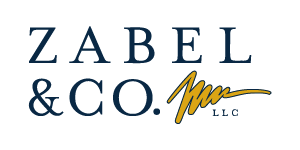The fear of a recession that brings layoffs and business shutdowns is now closer to becoming a reality. However, the more you do now to prepare, the better off you will be. Even if we don’t hit a recession, and you do all of these things, your company and your cash flow will be better off and more sustainable.
What Is a Recession?
Technically, a recession is any two consecutive quarters of negative GDP growth. By that measure, the U.S. is already in a recession — GDP fell by 0.6% in the second quarter and then another 1.6% in the third quarter.
The major effects of a recession, such as a slowing economy and steep declines in cash flow, have potential to come in 2023. However, business owners can start preparing now for festering economic changes that will help to prevent layoffs and shrinking profit margins.
Can You Recession-Proof Your Business?
It is possible to streamline your business operations now and prepare for the worst-case scenario. This includes looking for opportunities to reduce overhead and improve cash flow. There are several ways to start preparing today.
Start with Your Operating Structure
Remaining nimble is one of the best things you can do to survive an economic slowdown. This means keeping a flexible cost structure and identifying unnecessary overhead and discretionary expenses. Addressing these costs now will help you help maintain margins in the near term without sacrificing long-term growth.
How to Improve Operating Efficiency
Operational efficiency is a relatively easy lever that businesses can pull; however, many overlook this step. A good first step involves creating standard operating procedures to identify any gaps in efficiency — then filling those.
Good examples of gaps you can fill to improve efficiency include:
- Identifying what can be automated within your business
- Deepening customer relationships to reduce competitor shopping
- Assessing cash flow to reduce overhead, improve cash inflows, and limit outflows
- Improving the invoicing and collections process
Keeping an open line of communication with your customers and vendors can go a long way during a recession. Keeping the customers you already have is vital and will save you from having to find ways to replace that revenue. Good relationships with vendors can get you discounts, whether by paying in cash or buying in bulk.
The Importance of Managing Cash Flow
Showing an impressive net income figure on your financial statements is nice, but it doesn’t necessarily translate into cash flow. Managing cash flows appropriately will be imperative in a recession.
Improving efficiency will boost cash flow, and so will being proactive with negotiating with your vendors and outsourcing.
While downsizing your workforce might be the last resort, you can still feed the growth of your business during a recession with outsourcing. This can be an easy way to fill needed positions or get expertise for your company without committing to a full-time salary.
Shoring Up Your Balance Sheet
Getting your balance sheet in order is one of the best things you can do to weather a downturn. This includes making sure you have enough liquidity to offset revenue declines.
Actionable activities may include refinancing debt now that might come due in the next couple of years and selling off unproductive assets to build a cash reserve.
Prepare to Capitalize
If and when the worst of the recession comes, many businesses will be hit unprepared. If you have completed the steps above, you will be ready to capitalize on their shortcomings.
This may include making strategic acquisitions of other businesses or buying deeply discounted assets. This is where an ironclad balance sheet comes into play. Having the cash to buy these assets is vital, and having the balance sheet to get financing for a big move can be even more vital.
Other opportunities you will have include being able to diversify your business and further boost marketing efforts. Most businesses will cut marketing expenses when the recession hits, leaving opportunities for your firm to gain a foothold and significant market visibility.
Also, there will still be customers that need your products — strategic marketing can help you effectively steal customers from the competition.
Get Expert Help with Recession-Proofing Your Business
If you need help creating solutions to improve efficiency and plug cash flow leaks, we can help. The Zabel & Co. team has deep expertise in helping businesses navigate the unknown. Connect with us today to see how our business advisors can help you get the right people in the right roles.

